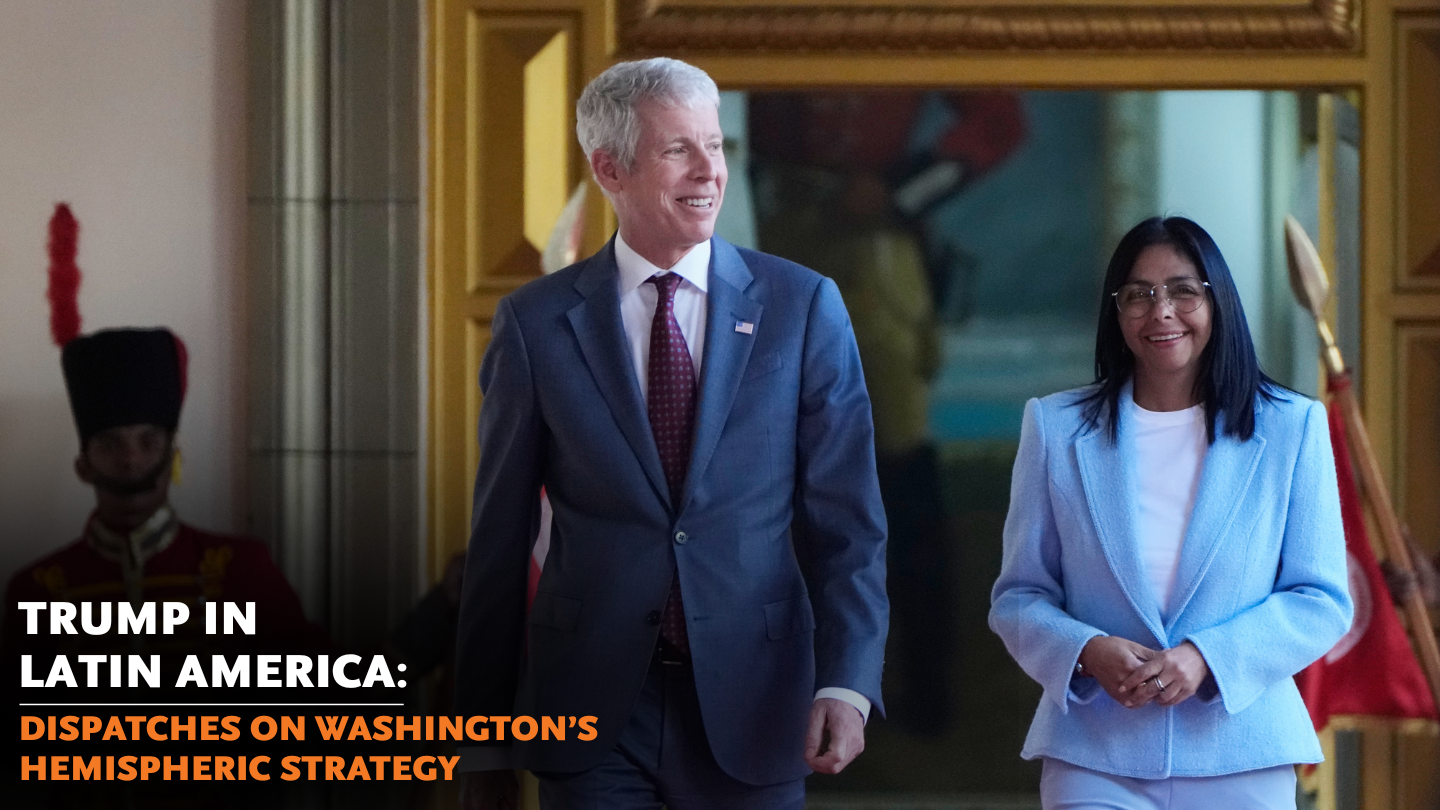Stop Hating on NAFTA
Stop Hating on NAFTA
The North American Free Trade Agreement as been battered lately with sharp criticisms and calls has been made to withdrawal from it. In an op-ed, U.S. Secretary of Commerce Carlos M. Gutierrez argues that this would be a disaster, hurting the U.S. economy, its workers, and its communities.
Recently, NAFTA has become something of a four-letter word, blamed for every economic ill. Some have even said they'd support American withdrawal from the North American Free Trade Agreement. That would be a disaster. Quitting NAFTA after 14 years would damage the U.S. economy, U.S. workers, U.S. farmers and U.S. communities.
With NAFTA, our economy remains the envy of the developed world. In fact, by most indicators, America has outperformed the average of the Group of Seven nations. Since 1993, our economy has grown 54 percent and more than 25 million net jobs have been created. In the 14 years before NAFTA, our nation's average unemployment rate was 7.1 percent. From 1994 to 2007, the average was 5.1 percent. U.S. manufacturing has grown at nearly 4 percent annually since NAFTA was enacted, nearly double that of the previous 14 years.
America is the world's No. 1 exporter, with $1.6 trillion in exports of goods and services last year; 2007 also marked our fourth consecutive year of double-digit export growth. Trade plays a significant role in our nation's economic growth, contributing 26 percent of the increase in real gross domestic product last year. NAFTA also accounted for a third of our overall goods exports in 2007. This trade benefits American workers who make the products we send abroad, American farmers who grow the agricultural exports, and American families and consumers who have more choices in our stores.
And it's not just the United States that has grown -- our neighbors have, too, making North America more competitive against other regions, including Asia. It is no coincidence that Mexico's tremendous advances in recent years -- economically, socially, and politically -- occurred after NAFTA was enacted. NAFTA's successes are bipartisan successes. Presidents George H.W. Bush, Bill Clinton, and George W. Bush deserve tremendous credit for pushing and enforcing this agreement.
Quitting NAFTA would send economic shock waves throughout the world, and the damage would start here at home. Our economy and much of the U.S. business model is increasingly integrated with our neighbors to the north and south. Withdrawing from NAFTA would destroy economies in U.S. border communities, hurt U.S. farmers, rip apart North American supply chains and information systems, and devastate large and small exporters. In short, it would cause incredible damage to the overall American economy.
The economic headwinds our country faces are real. Yet the housing downturn, which has affected our economy in the short term, is unrelated to trade. In fact, international trade and America's growing exports have helped offset the economic effects of the housing downturn. Clearly, many Americans are anxious about their jobs, their families and their futures. But our responses to economic anxieties must be thoughtful and responsible.
There was a time in our nation's history when we sought to protect Americans by withdrawing from the world. In reaction to increasing agricultural imports, our government raised tariffs to historically high levels. We tried to protect jobs. But instead of the prosperity Americans expected, our unemployment rate increased to 25 percent and international trade dropped 66 percent. Protectionism was the wrong approach during the Great Depression, and it's still wrong in 2008.
Isolationism is not an option in the global economy of the 21st century. America is at its best when it is competing openly. Our economic prosperity depends on being able to compete. The three free-trade agreements awaiting approval by Congress, with Colombia, Panama, and South Korea would be a step in the right direction and would boost U.S. exports.
Instead of discussing how to close markets, America should be taking action to open new markets. Taking a "timeout" on trade is akin to standing still at a moment when the rest of the world is moving forward and becoming more competitive. Suffocating our economy isn't a viable strategy for prosperity. Pretending we're not part of North America isn't a prescription for growth.
Carlos M. Gutierrez is the U.S. Secretary of Commerce.
Used with permission of the Washington Post. Copyright 2008. All rights reserved.








